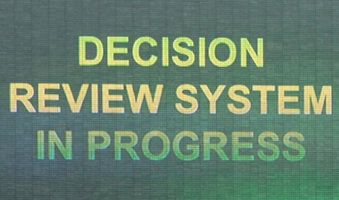Former interanational umpire Bomi Jamula is wary of trashing the Decision Review System (DRS) which came under the microscope during the just-concluded first Ashes Test between England and Australia at TrentBridge, Nottingham.
"DRS is dependent on technology which works well most of the time, but can fail occasionally. Take the case of a motor car. It works well most of the time but do we stop using the car when it causes problems some times," queried Jamula.
 A spate of controversial decisions involving DRS marred the conduct of the Test won thrillingly by England on Sunday.
A spate of controversial decisions involving DRS marred the conduct of the Test won thrillingly by England on Sunday.
In the list of umpiring decisions given via DRS was the final one when Australian wicket keeper Brad Haddin was declared caught behind for a fighting 71 off man of the match James Anderson to give the hosts victory by 14 runs and a 1-0 lead in the five-game rubber.
Jamula, who turns 60 on the 26th of this month, said he would prefer to wait and see whether the trouble with DRS was a one-off happening.
"We should wait for some more Tests to see whether it's a one-off (happening)," said Jamula, who is an Umpires' coach presently and is all set to attend a five-day meeting of the ICC for umpires and their coaches at Nagpur from Wednesday.
But at the same time he felt that if better technological help could be provided to the umpires, it should be looked into.
Jamula also wanted more training to be imparted to the umpires to use technology as he feels sometimes communication between the officials could create a misunderstanding.
"Umpires come from different regions and English is not their first language. So there may arise some misunderstanding in communications between them. Better training should be imparted to them," said Jamula who had officiated in four ODIs between 1990 and 1999, besides performing the TV umpire's duty in another game.
The Mumbai-born veteran cricket official had also performed the umpiring duty in 66 first class matches between 1982 and 2007.
Photograph: Mark Kolbe/Getty Images











 © 2025
© 2025